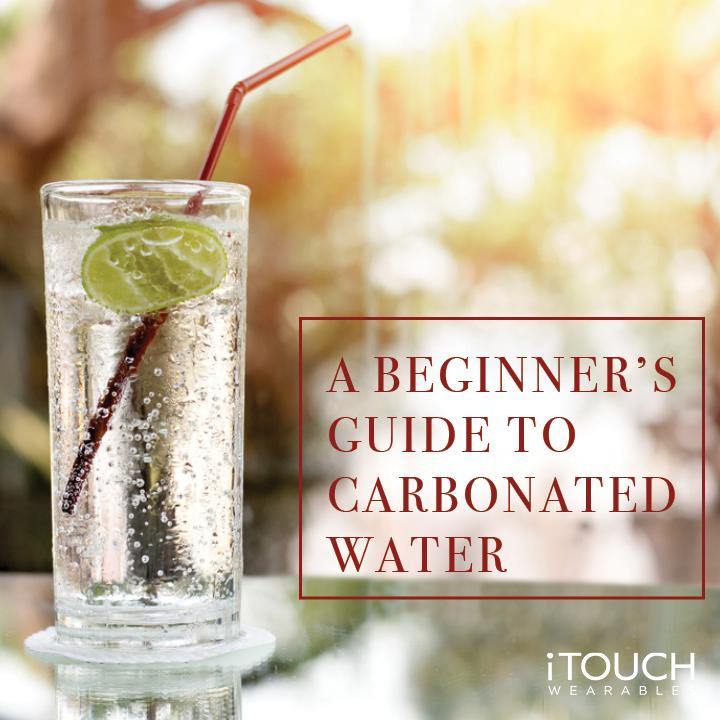
A Beginner's Guide to Carbonated Water
In recent years, carbonated water has taken the world by storm. As a growing number of consumers search for healthy alternatives to soda, carbonated water has experienced massive growth.
Despite the growing market for carbonated water, few individuals know the difference between seltzer, club soda, sparkling water and tonic water. Although these terms tend to be used interchangeably in every day language, they are not the same-- especially when it comes to if they are healthy or not. So, when delving into the commonly asked question "Is carbonated water good for you?," it is necessary to explore each variation separately.
Seltzer
To begin, let's take a deeper dive into seltzer. Seltzer is simply water with carbon dioxide added to provide the bubbly texture we all love. Although seltzer only has two ingredients by definition (water and CO2), the flavored varieties of seltzer (i.e. lemon seltzer, lime seltzer) can be chemical-heavy and increase the seltzer's caloric content. So, when evaluating your seltzer options, pay close attention to what is being utilized to flavor the beverage and beware of added sweeteners.
Since seltzer most closely resembles water, it is the healthiest option when it comes to carbonated water. It is just as hydrating as water from the tap and there is no evidence that suggests it has adverse effects on the body.
My personal favorite "guilt-free" seltzer is unflavored Polar Seltzer. It is 100% natural, has zero calories, and has no added sweeteners or fruit-juice.
Sparkling Mineral Water
Sparkling mineral water is naturally occurring carbonated water that comes from springs around the globe. The carbonation of sparkling water can come from added CO2 or can occur naturally. Sparkling mineral water contains different types of minerals, including sodium, magnesium, and calcium, depending on where it was sourced.
Despite its attractive name, an 8-ounce glass of sparkling mineral water can contain 10 to 30 milligrams of sodium (depending on the brand). Given the sodium content of this beverage, sparkling mineral water is not always the best choice when it comes to carbonated water. The hidden sodium content tends to be the main drawback of sparkling mineral water as it negatively impacts its hydrating qualities.
Pellegrino, a popular sparkling mineral water, used to be my go-to. But upon educating myself on its high sodium content, I made the switch to seltzer. Try and make the switch yourself, you will not regret it.
Club Soda

Club soda is simply carbonated water with certain minerals added. Typically, salt is added to club soda, but some brands choose to add additional minerals to further enhance the flavor.
While similar to seltzer, the sodium content of club soda is not ideal. Since most of us get enough sodium in our regular diets, we should take steps to eliminate sodium where we can-- like in our carbonated water choices.
Although club soda is often used interchangeably with seltzer, this should be avoided as using club soda adds sodium that can be otherwise avoided.
Tonic Water

Tonic water is most closely related to club soda as it also contains minerals. But, tonic water differs from club soda because it contains quinine, a compound sourced from the bark of cinchona trees. The quinine found in tonic water is responsible for providing its signature bitter flavor. In addition to quinine, most tonic water found in the grocery store also contains fruit extracts and sugar.
Although tonic water is not necessarily bad for you and has been proven to improve digestion, it may be an unnecessary source of calories and sugar. So, if you are a tonic water fanatic, consider trying seltzer as an alternative. It has fewer calories, less sugar, and will provide the same digestion benefits as tonic water.
3 rules to live by when choosing which carbonated water to indulge in:

1. Stick to seltzer.
2. Take a closer look at the ingredients. The fewer ingredients, the better.
3. Pay close attention to the nutrition facts as it can reveal the beverage's high sodium content.
As you can see, not all carbonated water is created equally. So, on your next trip to the grocery store, spend some extra time in the beverage aisle and take a closer look at the various carbonated water labels.
Share your go-to guilt-free carbonated water selection with us on Instagram & Facebook @itouchwearables. Also, be sure to check out our new articles published daily and the latest styles on iTouchWearables.com!
- Lauren




